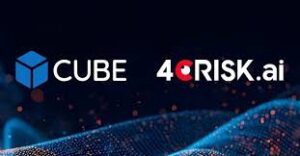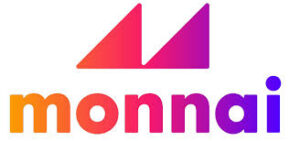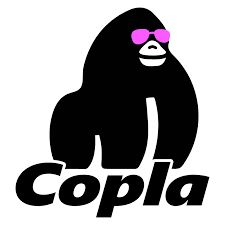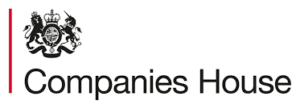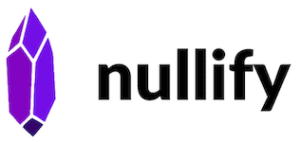OneTrust: Understanding the Privacy Compliance Platform Reshaping Enterprise Data Management
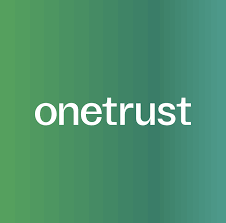
The privacy compliance software market barely existed a decade ago. Today, it’s a multi-billion dollar industry driven by an avalanche of regulations that didn’t exist when most companies built their technology infrastructure. OneTrust has emerged as the dominant player in this space, processing over 3 billion consent transactions weekly and serving 75% of the Fortune 100. Understanding what the platform does, and why it matters, requires looking at the regulatory environment that created the demand for it.
The Regulatory Context
Modern privacy regulations have transformed data management from an IT concern into a board-level risk. GDPR, implemented in 2018, gave European consumers unprecedented control over their personal data and imposed fines up to 4% of global annual revenue for violations. Amazon paid €746 million in 2021. Meta paid €390 million in 2023. These aren’t edge cases. They represent a fundamental shift in how regulators approach data protection.
California’s CCPA, Brazil’s LGPD, China’s PIPL, and dozens of other frameworks have created a patchwork of overlapping requirements. Companies operating globally face different rules for consent, different timelines for data subject requests, and different definitions of what constitutes personal information. Managing this manually is increasingly impossible at scale, which is where enterprise privacy platforms enter the picture.
What OneTrust Actually Does
Founded in 2016 by Kabir Barday in Atlanta, OneTrust built a comprehensive platform for privacy operations. The software connects to an organization’s websites, applications, databases, and third-party tools to create centralized management for data governance.
Privacy and consent management forms the core functionality. When a user visits a website, the platform generates compliant cookie banners tailored to their jurisdiction. When someone in Germany opts out of marketing cookies, the system synchronizes that preference across every digital touchpoint: website, mobile app, email systems. When a consumer submits a data deletion request, the software creates workflows to locate that person’s information across multiple internal systems and coordinate removal.
This matters because the volume is substantial. Large enterprises process thousands of privacy requests monthly. Each request requires searching dozens of databases, coordinating across multiple teams, documenting every step for audit purposes, and responding within legally mandated timeframes, often 30 days. Automation transforms this from a labor-intensive process requiring paralegals and IT resources into a systematized workflow.
Data governance tools help organizations understand their information assets. Most companies don’t have comprehensive visibility into what data they collect, where it’s stored, or how it flows through their systems. The platform maps these data flows, classifies information by sensitivity level, and identifies compliance gaps. For regulated industries like healthcare or finance, this visibility is increasingly required by auditors and regulators.
Vendor risk management addresses a growing vulnerability. When organizations use third-party services like Salesforce, Mailchimp, or AWS, those vendors process customer data. If a vendor experiences a breach or compliance failure, the company using that vendor shares liability. The platform automates vendor security assessments, tracks certifications, monitors risk scores, and flags when third parties fail to maintain required compliance standards.
Market Position and Scale
OneTrust’s growth has been exceptional. The company captured approximately 30% of the global data privacy compliance software market by 2022, roughly double its nearest competitor. IDC MarketScape named it a market leader in 2023, highlighting comprehensive features and rapid enterprise adoption.
The platform serves over 14,000 customers across financial services, healthcare, technology, retail, and manufacturing. The company employs over 2,000 people with offices in London, Bangalore, Munich, Melbourne, and other major cities. This global presence allows the platform to address region-specific regulatory requirements while providing unified solutions for multinational enterprises.
The competitive landscape includes specialized players like TrustArc, Securiti, and BigID, each offering different approaches to privacy management. Some focus on specific regulations, others emphasize particular industries, and some prioritize data discovery over consent management. OneTrust’s breadth (covering privacy, security, governance, and compliance in one platform) differentiates it but also creates complexity that isn’t necessary for every organization.
The AI Governance Expansion
OneTrust recently moved into artificial intelligence governance as new regulations emerge around automated decision-making. The EU AI Act, various US state laws, and industry-specific requirements are creating compliance obligations for companies deploying AI systems.
The platform’s AI governance module provides frameworks for documenting training data, tracking model decisions, ensuring algorithmic transparency, and managing ethical considerations throughout the AI lifecycle. Companies using AI for credit decisions, hiring algorithms, content moderation, or customer service can use these tools to demonstrate responsible AI practices.
Whether AI governance becomes as foundational as cookie consent management remains uncertain. Regulations are still being finalized, and the scope of compliance obligations isn’t fully defined. The company is positioning itself early in a category that may become mandatory for enterprises, similar to how GDPR created urgent demand for consent management platforms.
Implementation and Operational Considerations
Deploying enterprise privacy software isn’t simple. Organizations typically face 6-12 month implementation timelines for comprehensive deployments. The platform must integrate with existing technology stacks, which requires developer resources. Internal teams need training. Business processes need redesign to incorporate privacy workflows. Marketing teams must adjust tracking practices. Legal teams must update policies.
The platform’s extensive feature set (covering privacy, security, vendor risk, and emerging areas like AI governance) means most organizations use a fraction of available functionality. This creates a trade-off between comprehensive capabilities and operational complexity.
The Broader Impact
OneTrust represents a shift in how enterprises approach data privacy: from reactive compliance to proactive infrastructure. Rather than treating privacy as a legal obligation handled by spreadsheets and manual processes, organizations are embedding it into operational systems where it becomes automatic rather than afterthought.
The platform doesn’t replace judgment about data practices. Software can automate consent management, but it can’t determine whether a business model is fundamentally privacy-invasive. It can map data flows, but it can’t decide whether data collection is necessary. It provides tools for compliance, not ethical frameworks for data stewardship.
For enterprises navigating complex, multi-jurisdictional regulatory requirements, platforms like this have become infrastructure rather than optional tools. The privacy compliance industry (barely a decade old) now influences how organizations design products, engage customers, and manage risk. Understanding these platforms means understanding how modern enterprises balance data utilization with regulatory obligations and consumer expectations.

